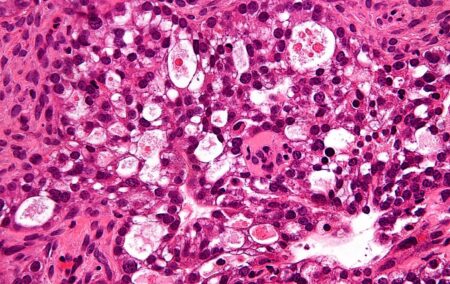Researchers at Tel Aviv University have successfully used RNA nanodrugs to ‘silence’ a gene that encodes for a protein that causes ovarian cancer to metastasise, The Times of Israel reports.
The new approach reportedly provides hope for a possible treatment for aggressive and metastatic cancers that are resistant to chemotherapy and immunotherapy.
Globally, ovarian cancer affects 1 in 78 women and is the fifth deadliest malignancy in women. There is no reliable screening method for ovarian cancer, with symptoms often going unnoticed, usually leading to diagnosis at advanced stages of the disease, when it has already spread to other organs.
Some 93% of women whose ovarian cancer is diagnosed at an early stage can expect to live at least five years, but only 31% of those diagnosed at an advanced stage can expect to live for that long.
According to The Times of Israel, the research team, led by Professor Dan Peer of the Shmunis School of Biomedicine and Cancer Research, decided to tackle a very basic mechanism in cancerous tumours – uncontrolled cell division.
The scientists targeted the cells with lipid nanoparticles containing RNA for silencing the protein responsible for cell division. This caused the cells to collapse and achieved an 80% survival rate in mice.
The cell division in cancer cells was arrested, while normal control cells were not affected.
The report says the team estimates that this technology will be offered in human trials in two to three years.
The ultimate goal was to edit out the genes that cause ovarian cancers completely from the genome. This would mean the difference between regular ongoing treatments and stopping the disease with just one or two doses of an RNA nanodrug, the report says.
[Image: Nephron, https://commons.wikimedia.org/w/index.php?curid=15298256]

